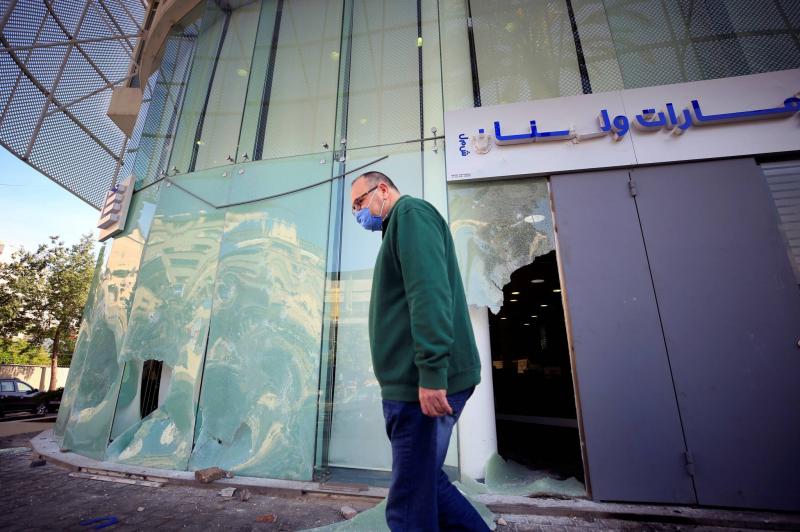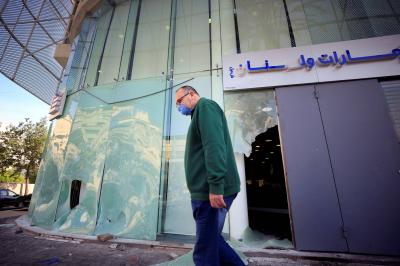No voice is louder than the dollar in its rise or fall, almost magically ruling the daily lives of Lebanese people and their livelihoods. Their lives have become tied to its whims, controlling every sector without exception, especially after the official dollarization of supermarket pricing began yesterday.
The president of the General Confederation of Lebanese Workers, Bishara Asmar, depicted the current scene as a disaster hitting Lebanon due to the confusion of officials and their focus on unstudied measures and retaliatory reactions that have led the country to this precarious turn. Asmar believes that what we are witnessing today is a result of the faulty policy adopted to finance increases in the public sector, noting in an interview with Al-Anbaa electronic newspaper that they were fundamentally against these increases and the imposition of taxes. He promised to take scientific and studied actions to tackle the crisis to yield the desired fruits, avoiding mere statements.
Asmar also pointed out that many pressing questions need to be addressed, mentioning several sectors that have come to a halt, including the educational sector. Despite the minister's diligent efforts, there is no change in the situation, which threatens the school year, in addition to the ongoing strike in the public sector, which has lasted for more than six months without any results.
He continued: "Thus, we said that these measures taken have not satisfied part of the public sector because the problem lies in financing the treasury." He questioned how a state can continue with its funding sources halted and inactive—no real estate offices, utility services, vehicle registration, education, health, mechanical inspections, or tax collections. Asmar considered that this type of strike is not effective and expressed fear over calls for strikes and going to the streets without achieving the desired results. He voiced his concern over a potential security explosion amid prevailing conditions, noting that the ongoing political disorder could lead to security chaos. He promised that the wage adjustment decision would be published in the official gazette this week.
Regarding dollarization and the increase in the customs dollar, financial and economic expert Antoine Farah indicated that the dollar price in the black market is artificial and lower than its real price, especially when the Central Bank intervened to curb its swift rise. He recalled how it intervened strongly in December 2022 to stop the dollar from rising quickly, but soon retreated, causing the dollar to rise rapidly to its actual price in the black market, which has recently occurred.
As for the topic of raising the customs dollar to 45,000 Lebanese pounds, Farah mentioned that this might not be popular, but the reality is that when the customs dollar was at 15,000, the price of the dollar in the black market ranged between 30,000 to 35,000, meaning the customs dollar equaled 50% of the actual dollar price. Now, with the customs dollar raised to 45,000 and the dollar reaching 90,000, before declining again, and potentially rising to 100,000, it still remains at around 50% of the dollar price. Thus, the ratio remains the same; although prices in dollars do not rise, prices in pounds will surely increase. Consequently, citizens earning in pounds, with salaries still at minimal levels, will inevitably experience a further decline in their purchasing power, leading to an increase in poverty levels in the country.
This grim scene and manipulation of exchange rates will not change, and a halt to the collapse will only commence when we reach a rescue plan and a politically and economically stable scenario, according to Farah, who asserted that only then can we hope that we have taken the first step on the thousand-mile journey of economic reform.




